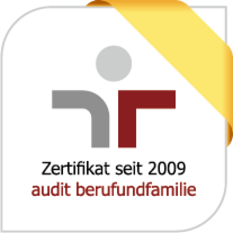Master thesis - Traceability in feed control: Analytical approaches to differentiate protein marker origin from legal and illegal sources

The German Federal Institute for Risk Assessment (BfRshort forGerman Federal Institute for Risk Assessment) is the national institute which prepares expert reports and opinions on questions of food, feed and chemical safety and consumer health protection in Germany on the basis of internationally recognised scientific assessment criteria. It advises the Federal Government and other institutions and interest groups in these areas. The BfRshort forGerman Federal Institute for Risk Assessment conducts its own research on topics that are closely linked to its assessment tasks. It is an institution with legal capacity within the portfolio of the Federal Ministry of Food and Agriculture (BMELshort forGerman Federal Ministry of Food and Agriculture). At BfR’s Department for Food Safety within the National Reference Laboratory for Animal Protein in Feed there is an opening for a Master Thesis (also scalable to Bachelor Thesis, research training) on the topic: Traceability in feed control: Analytical approaches to differentiate protein marker origin from legal and illegal sources.
As a consequence of the BSE crisis in the 1990s, feed ingredients from animal origin are strictly regulated in the European Union. According to the Commission Regulation (EU) 999/2001, milk, milk products, gelatin, and gelatin-containing former foodstuff may be fed to all or certain farmed animals. However, these materials do physiologically contain proteins that are proposed as markers to detect materials illegal in feed.
The aim of this thesis is to (i) determine thresholds for physiological presence of blood proteins in milk and milk products as well as to (ii) study different approaches to distinguish (processed) gelatin of legal and illegal origin (e.g. former foodstuff vs. meat-and-bone meal) via sample preparation or identification of alternative markers.
Tasks
- preparation of samples from our collection using established standard proteomic protocols as well as
variations thereof - data acquisition on modern high and low resolution mass spectrometers online coupled to (nano)UHPLC
- quantitative data analysis from targeted methods
- comprehensive data analysis towards maker identification and evaluation comprising both peptide identification including post-translational modifications and semi-tryptic peptides as well as relative quantitation in various materials
- preparation of sample mixtures to experimentally validate detectable adulteration levels
Requirements
- background in (bio-)chemistry or another related field (e.g. biology, toxicology, biotechnology,
pharmacy) - theoretical knowledge on mass spectrometry is a prerequisite, hands-on experience in instrumental
analysis and/or protein (bio-)chemical analysis is a plus - very good written and spoken English language skills
- flexible, engaged, and self-organised way of working
We offer an excellently equipped laboratory environment, a cooperative research environment in an
interdisciplinary and international team and comprehensive supervision.
Application process
More detailed information is available from Dr. Uta M. Herfurth (Tel. +49 30 18412-25105). If you are interested, please apply via E-Mail to (uta.herfurth@bfr.bund.de) using the subject “application thesis: traceability“. Please enclose your CV, a short letter of motivation, certificates / transcripts of records, and your desired time frame.

The BfRshort forGerman Federal Institute for Risk Assessment welcomes applications from people of all nationalities.The BfRshort forGerman Federal Institute for Risk Assessment is an innovative scientific institute offering family-friendly working conditions. for which it was awarded the “audit berufundfamilie®” (work and family) certificate. The BfRshort forGerman Federal Institute for Risk Assessment guarantees equal career opportunities for women and men. In the case of equal suitability, severely disabled applicants will be given preferential consideration and are only required to have a minimum level of physical suitability.